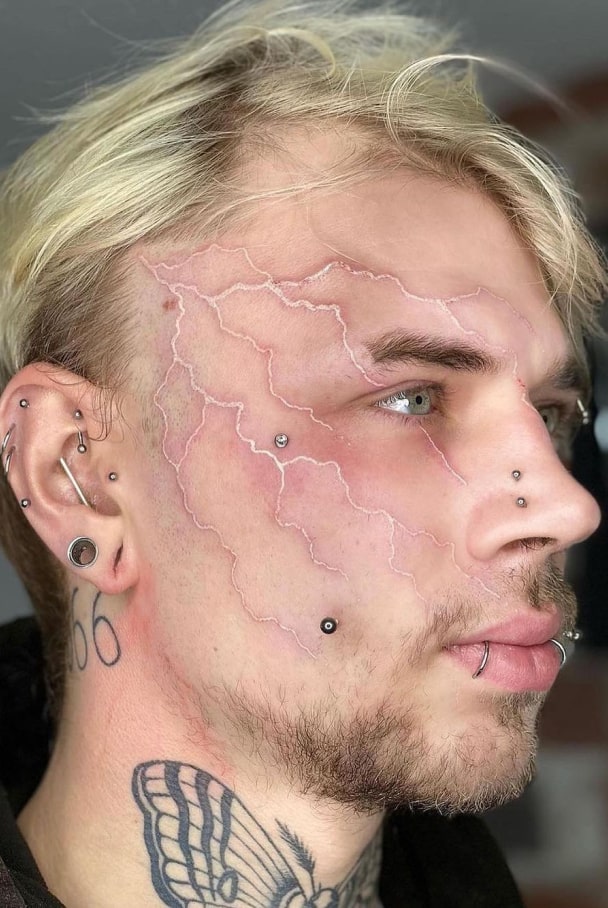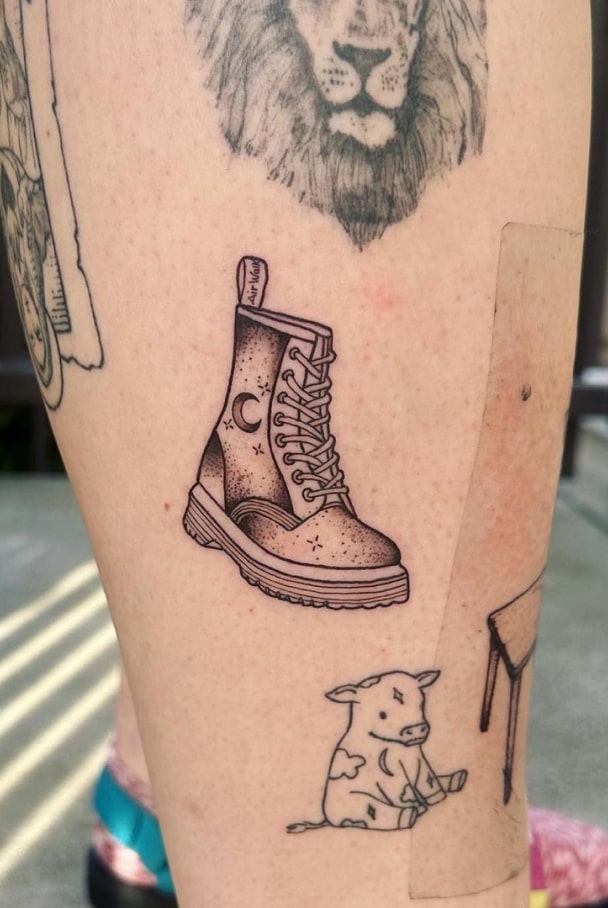Tattoos have been a form of self-expression, cultural significance, and personal identity for centuries. From ancient civilizations to modern societies, tattoos have evolved in meaning, style, and acceptance. But will they ever go out of fashion? To answer this, let's explore the history and evolution of tattoos, their current popularity, and instances where they have fallen out of favor in different cultures.
The History and Evolution of Tattoos
Ancient Beginnings
Tattoos have a long and diverse history, dating back to ancient times. The earliest evidence of tattooing comes from the discovery of Ötzi the Iceman, a 5,300-year-old mummy found in the Alps. Ötzi had 61 tattoos, which are believed to have been used for therapeutic purposes, similar to acupuncture.
In ancient Egypt, tattoos were found on mummies dating back to 2000 B.C. These tattoos were often symbolic, representing protection, fertility, and status. Similarly, the Polynesian cultures have a rich history of tattooing, with intricate designs that tell stories of lineage, social status, and spiritual beliefs.
Cultural Significance Across the Globe
Throughout history, tattoos have held significant cultural meanings in various societies. In Japan, the art of irezumi has been practiced for centuries. Initially, tattoos were used to mark criminals, but over time, they evolved into elaborate body art associated with the yakuza, or Japanese mafia. Despite their underground association, Japanese tattoos are renowned for their beauty and complexity.
In the Pacific Islands, tattoos are a rite of passage. The Samoan tradition of pe'a and malu, extensive tattoos for men and women respectively, signifies bravery and social status. The Maori of New Zealand also have a strong tattoo culture, with their facial tattoos, known as tā moko, representing personal and ancestral history.
Tattoos in the Modern Era
The Renaissance of Tattooing
The modern tattoo renaissance began in the late 19th and early 20th centuries. With the invention of the electric tattoo machine by Samuel O'Reilly in 1891, tattoos became more accessible and affordable. Sailors, soldiers, and rebels were among the first to popularize tattoos in the Western world, often using them as symbols of camaraderie, adventure, and defiance.
In the mid-20th century, tattoos experienced a surge in popularity among countercultures, such as bikers and rock musicians. By the 1970s and 1980s, tattooing had gained mainstream acceptance, evolving from a symbol of rebellion to a form of personal expression.
Current Popularity and Trends
Today, tattoos are more popular than ever. A survey conducted by the Pew Research Center in 2010 found that nearly 40% of millennials had at least one tattoo. This number has likely increased as tattooing continues to become more accepted and embraced by people of all ages and backgrounds.
Celebrities have played a significant role in normalizing tattoos. Stars like David Beckham, Angelina Jolie, and Rihanna have openly displayed their ink, inspiring fans to follow suit. Social media platforms, such as Instagram, have also contributed to the tattoo boom by providing a space for artists to showcase their work and connect with potential clients.
Have Tattoos Ever Gone Out of Fashion?
Instances of Decline
While tattoos are currently enjoying widespread popularity, there have been times and places where they have fallen out of favor. For example, during the early 20th century in Japan, the government banned tattoos in an attempt to modernize the country and shed its perceived barbaric image. This forced the tattoo culture underground, where it persisted despite the legal restrictions.
Similarly, in the Soviet Union, tattoos were associated with criminality and were often used to mark prisoners. This negative connotation led to a decline in tattoo acceptance among the general population. It wasn't until the fall of the Soviet Union that tattoos began to regain popularity in Russia and other former Soviet states.
Cultural Shifts
In some cultures, tattoos have experienced fluctuating acceptance. In the United States, for example, tattoos were largely associated with sailors, bikers, and criminals until the late 20th century. The stigma surrounding tattoos began to fade as more people from diverse backgrounds started getting inked, leading to the current tattoo revival.
The Future of Tattoos
A Timeless Trend?
Given their rich history and enduring appeal, it seems unlikely that tattoos will go out of fashion anytime soon. Tattoos have continually evolved, adapting to cultural shifts and technological advancements. Today, tattoo styles are incredibly diverse, ranging from traditional and tribal designs to hyper-realistic and minimalist art.
The increasing professionalism of the tattoo industry has also contributed to its sustained popularity. Many tattoo artists now undergo extensive training and adhere to strict health and safety standards, making the process safer and more appealing to a broader audience.
Global Popularity
Tattoos are embraced worldwide, with some regions standing out for their particularly strong tattoo cultures. For example, New Zealand's Maori tattoos and Japan's irezumi continue to captivate people globally. In the United States, cities like Los Angeles, New York, and Miami are renowned for their vibrant tattoo scenes, attracting top artists and tattoo enthusiasts.
Conclusion
While fashion trends come and go, tattoos have proven to be more than just a passing fad. Their deep-rooted cultural significance, combined with their ability to evolve and adapt, suggests that tattoos will remain a popular form of self-expression for generations to come. Whether you view tattoos as art, identity, or a personal narrative, their enduring appeal is a testament to their timeless nature. So, while styles and preferences may change, it’s safe to say that tattoos are here to stay.








